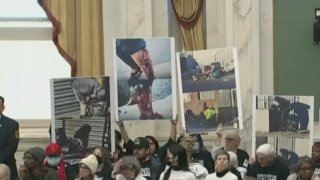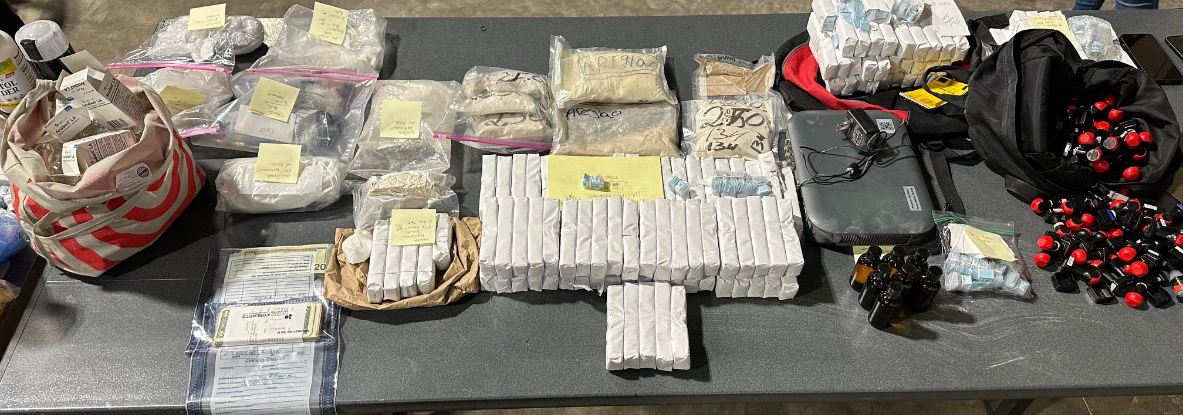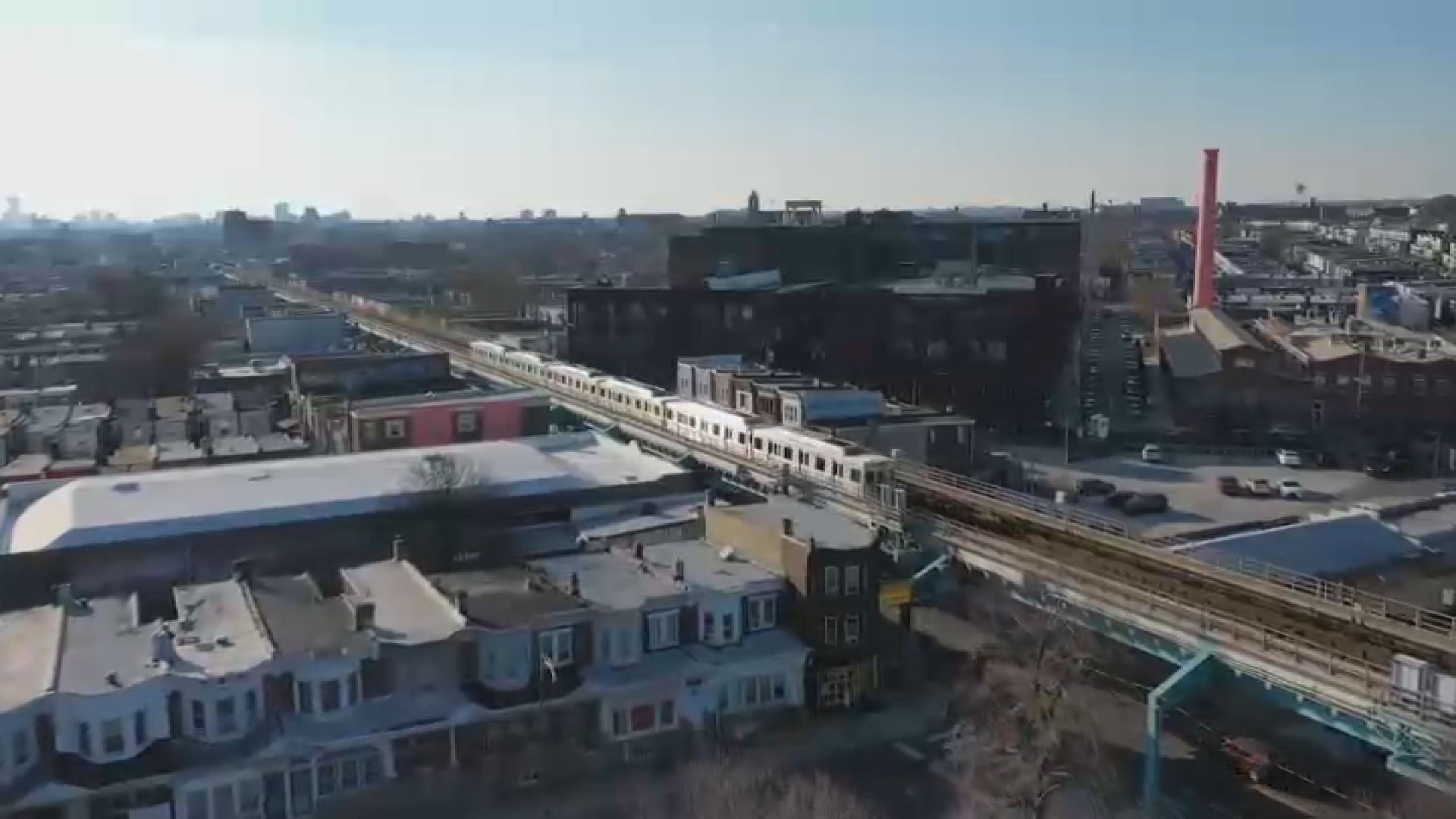
Holding signs depicting the graphic tragedies that can been seen on the streets of Kensington on any given day, dozens of residents of Philadelphia's poorest neighborhood flocked Thursday's City Council meeting in support of an idea that, many said, was long overdue.
The idea? A Kensington Caucus -- which was introduced before council last week.
"This initiative taken by this body is giving hope back to our children and our community," said Marnie Aument-Loughrey, head of the Kensington Independent Civic Association in support of the caucus during Thursday's meeting.
A Kensington Caucus
Get Philly local news, weather forecasts, sports and entertainment stories to your inbox. Sign up for NBC Philadelphia newsletters.
As detailed last week, the Kensington Caucus -- which was approved unanimously by City Council on Thursday -- will consist of Councilmember Quetcy Lozada, whose 7th councilmanic district represents Kensington, along with fellow councilmembers Mike Driscoll (D-6th dist.), Jim Harrity (D-at large), and Mark Squilla (D-1st dist.).
It will work to execute what Lozada has called the Kensington Marshall Plan -- which is still being developed -- that will allow legislators to determine what resources are on the ground, who is providing resources, how they are being delivered and what challenges the community faces.
And, on Thursday, during time for public comment, City Council heard from residents and community leaders in total support of the caucus.
In fact, not one person in attendance spoke against the plan.
'It doesn't need to be like this'
"People have a real feeling of hope," Alfred Klosterman, who lives in Harrowgate, said. "We, the community, are on board with this proposal. It needs to be done. Give us back our community."
Klosterman discussed how his community has "long worked" to improve conditions and said the Kensington Caucus might be "the best approach."
How long it has taken to see city officials take steps toward impacting the opioid epidemic that has gripped the Kensington community was an often discussed concern on Thursday.
Shannon Farrell, president of the Harrowgate Civic Association, said that she worked with the past administration for at least six years and "they consistently said the most vulnerable people in our community were the drug users, and not the children."
"It's been years since anybody cared," she said.
As residents spoke, members of the audience held aloft enlarged images of those suffering from opioid addiction to display some of what, many said, showed what the community there struggles to deal with on a daily basis.
Lifelong Kensington resident and youth activist Daisie Cardona gestured to these images while taking a moment to address council, saying it was time for a change.
"I have seen this every single day since I was a little girl," she said, "It doesn't need to be like this."
For Steven Bilski, principal of the Memphis Street Academy Charter at JP Jones in nearby Port Richmond, the children who live in and go to the school deal with realities of Kensington that continue to create a "recipe for trauma that they then carry through the school doors."
"Every day these students are forced to start their days making their best attempt at blocking out these images and experiences to do their best at concentrating on academics," he said. "Far too many suffer in silence as we attempt to meet their holistic and academic needs."
One resident, Darlene Burton, who has lived in Harrowgate for nearly 30 years, said she worries about her children as well. In fact, she said, while sweeping in front of her home, she was stuck by a used needle, and she still deals with the trauma.
"I have to get HIV testing every three months for a drug that I've never used," said Burton. "I'm asking you to approve this caucus because we need our community back."
Transforming Kensington will likely take years
In the end, the caucus was approved unanimously to a rising round of applause from those in attendance.
Councilmember Lozada said that the day's turnout showed that members of Kensington's community are ready for a change.
However, Lozada acknowledged that -- while those in attendance supported the initiative -- she has heard concerns that the caucus may not take people's suffering into consideration or "weren't being compassionate," as they look to make changes to the community.
"I want them to know that that is far from true," said the councilwoman.
Also, Lozada noted that, after a recent sweep of the Kensington community in which law enforcement officials claimed they recovered over 11 lbs. of fentanyl, some in the community blamed the caucus or Mayor Cherelle Parker's administration for the police action.
But, Lozada firmly argued that legislators had "nothing to do with it."
"Though we had nothing to do with it, we are very supportive of our public safety partners who help protect communities like Kensington, who for many years, have been under occupation," said the councilwoman.
Lozada thanked community members for their support, but noted that improving the area would likely take "a few years," but she promised that the caucus intends to be there every step of the way -- even when it gets difficult.
"The next few years will be difficult and the optics of it will be more difficult, but we should ask ourselves, 'should our children see those images every day or is it better for them to see an increase of police presence?'" asked the councilwoman.
Still, Lozada said that the effort is worth undertaking to protect and improve the lives of residents -- especially for seniors and children.
"We have a responsibility as a city to ensure that, our children -- particularly those who we have failed over the course of the last few years -- live and are given a better quality of life," said Lozada. "What we can't do is allow them to continue to live in the conditions that they are living in."
'Tag flipping' bill introduced
Also, during the meeting, City Councilmember Driscoll, a member of the Kensington Caucus, introduced a bill targeting "tag flippers," as he called them. These are devices that can be used to change a vehicle's license plate.
These devices, he said, are used by drivers looking to hide their identity -- which are used in crimes like street racing, toll evasion and reckless driving, among other concerns.
"Tag flippers do not belong on the streets of Philadelphia," said the councilman.
Under the bill Driscoll introduced on Thursday, anyone who is found using one of these devices would face a $2,000 fine.
This legislation was passed to committee and will need to receive a second reading before City Council could vote on the bill.
Sign up for our Breaking newsletter to get the most urgent news stories in your inbox.



